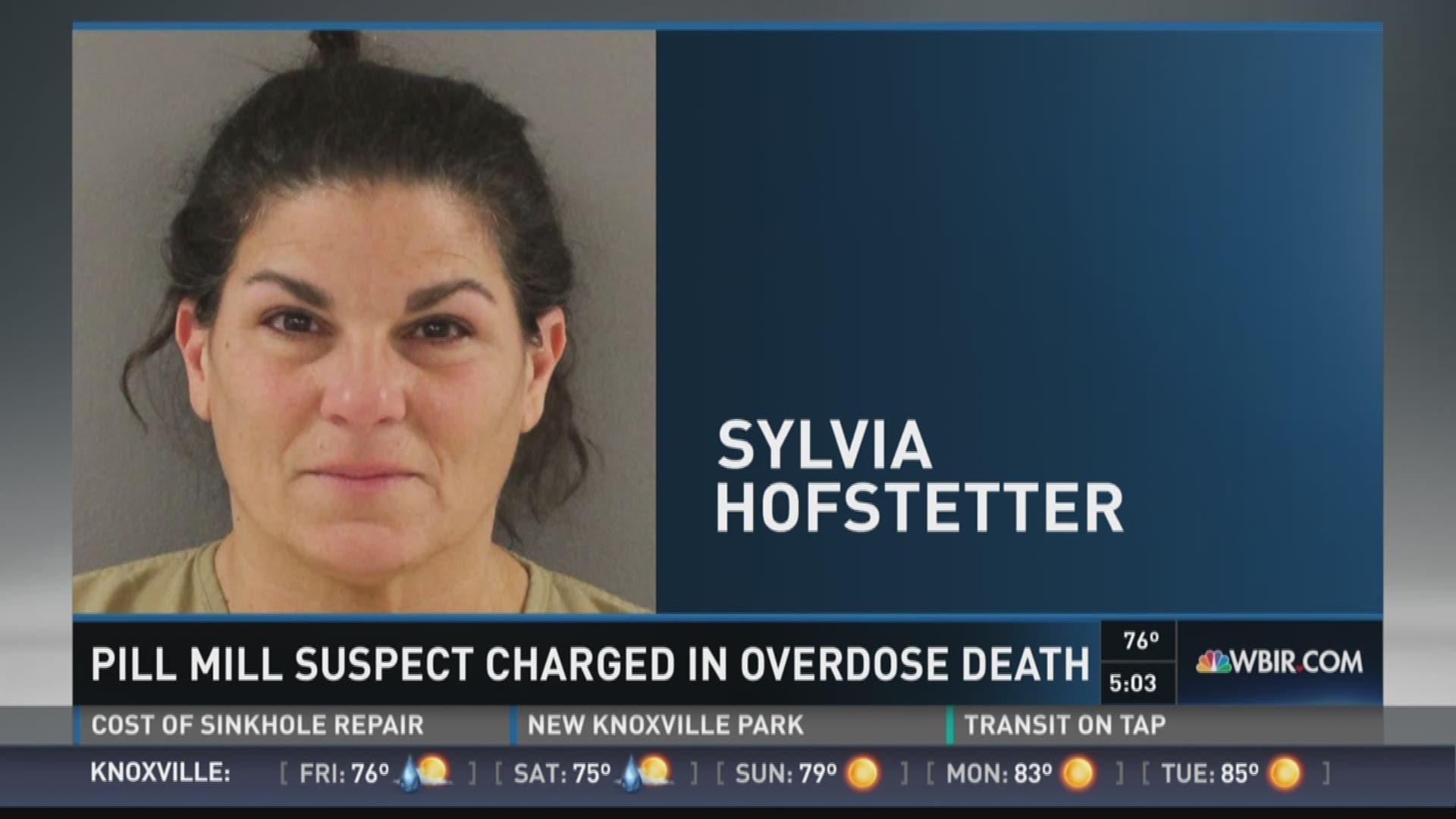KNOXVILLE, Tenn. — They've listened to evidence for weeks. Now it's time for an East Tennessee federal jury to decide whether a Florida woman and several former nurse practitioners are guilty of working together to run a multimillion-dollar pill mill scheme.
Government prosecutors and defense attorneys spent Monday presenting closing arguments in the case against Sylvia Hofstetter, Cynthia Clemons, Courtney Newman and Holli Womack.
"These defendants became a deadly and integral part of the opioid epidemic," said Kelly Kathleen Pearson of the U.S. Department of Justice.
Jurors face a lengthy list of instructions from U.S. District Judge Thomas Varlan before they can begin deliberations. The East Tennessee panel will have to sort through multiple counts against the four defendants, including whether they conspired to run a drug conspiracy.
Hofstetter also is charged with engaging in racketeering. The nurse practitioners also are charged with dispensing drugs that led to someone's death, records state.
Authorities allege Hofstetter oversaw several area clinics while Clemons, Newman and Womack worked at various times as nurse practitioners, seeing patients and writing prescriptions. Starting in the early 2010s, Hofstetter opened clinics on Gallaher View Road, then Lenoir City and eventually on Lovell Road.
Some 11 million opioid pills were prescribed out of the clinics, with Clemons, Newman and Womack approving prescriptions for about 2 million by themselves, the government alleges. Very little actual medical treatment was prescribed for customers, Pearson said.
The trial is one of the longest in recent decades in East Tennessee.
Jurors were seated the week of Oct. 21. They heard proof from the government through early this month, except for holiday breaks. Defense attorneys began presenting testimony the first full week of January.
The point of the clinics was simply to make as much money as possible, Pearson told jurors. Several men nicknamed "The Italians," including Luigi Palma and Luca Sartini, who fled to Italy, fronted the money to start some of the clinics. Pearson said once Hofstetter figured out she could make a lot of money, she quietly conspired to open a Knoxville area clinic herself.
Authorities portray Hofstetter, a South Florida native, as the local mastermind of the operation. Hofstetter previously worked at a clinic in Hollywood, Fla.
With little or no screening or proper medical attention, staff at clinics tied to Hofstetter handed out opioid prescriptions to eager addicts and drug sellers for several years until the feds staged a raid in March 2015, according to the government.
Documents state the clinics involving Hofstetter and other defendants generated more than $21 million in revenue from 2011 to 2014.
RELATED: 'Patients are beating down our door': As trial winds down, testimony shows how pain clinic thrived
Along with the clinics, federal authorities raided Hofstetter's Farragut area home.
Hofstetter spent millions of dollars of her profits from the clinics gambling, a favorite pastime, according to testimony.
Defense attorneys contend the defendants actually sought to run a legal and respectable operation but suffered at the hands of rogue employees. The nurse practitioners also were simply trying to follow the directions of the medical doctors who ran them, according to the defense.
Speaking for Clemons, defense attorney Jeff Whitt told jurors his client discharged some 200 patients because she no longer thought they needed or should get treatment at the Hofstetter clinics.
She also pressed to get medical information on her patients as she administered to them, Whitt said. He said medical providers also followed the guidelines set by a former medical director, Dr. Richard Larson, in issuing prescriptions for customers, he said.
The government says the clinic operators generated more than $21 million in revenue.
It was "no different than a drug house," Pearson said, in describing for jurors how freely the staff handed out opioid prescriptions.
The government alleges some 700 patients of the Florida and Tennessee clinics are now dead, and "a significant percentage of those deaths, directly or indirectly, were the result of overdosing on narcotics prescribed by the (clinics). As alleged in the indictment, the narcotics prescribed by the (clinics) contributed to the deaths of another significant percentage of those patients".
The four defendants are only part of the alleged conspiracy. Other defendants have pleaded guilty and testified at trial; some have died during the course of the case.

